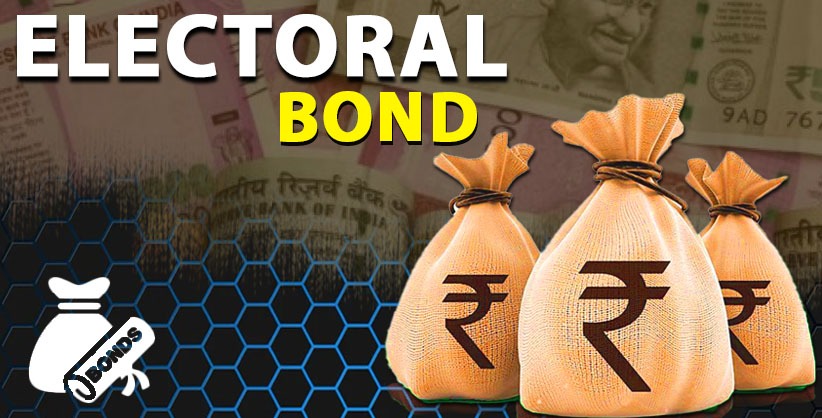NEW DELHI: The Centre on Friday maintained before the Supreme Court that the electoral bonds scheme is an absolutely transparent mode of political funding with no possibility of black money being used for ir.
Appearing for the Centre, Solicitor General Tushar Mehta submitted before a bench of Justices B R Gavai and B V Nagarathna that the methodology of receiving money is transparent.
"Nothing is black now, rather everything is transparent," he said.
However, the bench asked Mehta if the system provided information where the money is coming from.
To this, Mehta said, "Absolutely!"
Appearing for an NGO, advocate Prashant Bhushan said two issues which affected the democracy are electoral bonds and bringing political parties under the RTI.
He claimed anybody can get foreign money by virtue of this.
Senior advocate Kapil Sibal, representing a petitioner, submitted since this is an important issue, it could be heard by a larger bench.
The petitioners also said the should be heard as early as possible, as state elections are coming up.
Mehta said this was not election related issue.
The bench said the matter required a detailed hearing. It also pointed out the case can't be referred to a larger unless there is conflict of views.
The court posted the matter for hearing on December 6.
NGO Association for Democratic Reforms (ADR) and others have challenged the validity of the Centres electoral bonds scheme introduced in 2018 as a source of political funding.
They claimed the scheme allowed donations from firms allegedly in an opaque manner.
The government notified the Electoral Bond Scheme on January 2, 2018, to cleanse the
system of political funding in the country.
On March 27, 2021, the apex court had rejected the charge that the scheme was totally opaque.
The court had then said the apprehension that foreign corporate houses may buy the bonds and attempt to influence the electoral process in the country, was "misconceived" as under Clause 3 of the Scheme, the Bonds may be purchased only by a person, who is a citizen of India or a company incorporated or established here.
With regard to charge of bonds being opaque with no details of donors in public domain, the bench had said, "it is not as though the operations under the Scheme are behind iron curtains incapable of being pierced."
The court had also said since the Scheme mandated political parties to file audited statement of accounts and also since the Companies Act requires financial statements of registered companies to be filed with the Registrar of Companies, the purchase as well as encashment of the bonds, happening only through banking channels, is always reflected in documents that eventually come to the public domain.
The court had then dismissed an application filed by Bhushan on behalf of the NGO to stay the sale of fresh set of electoral bonds from April 1, 2021 amid state assembly elections in West Bengal, Tamil Nadu, Kerala, Assam and Union Territory Puducherry.
It had said despite the fact that the Scheme provided anonymity, it was intended to ensure that everything happened only through banking channels.
Bhushan claimed the first purchase may be through banking channels, someone may repurchase the bonds from the first buyer by using black money and hand it over to a political party.
The court had again discarded it by saying, "This contention arises out of ignorance of the Scheme. Under Clause 14, the Bonds are not tradable. Moreover, the first buyer will not stand to gain anything out of such sale except losing white money for the black."
The court also said it found no justification to grant stay as the Bonds are released at intervals in January, April, July and October of every year; that they had been so released in the years 2018, 2019 and 2020 without any impediment; with certain safeguards, including filing of details with the Election Commission. matter came up for hearing after a gap of more than 18 months.
The court had then declined to entertain two stay applications moved by ADR to stop the sale of the electoral bonds ahead of elections in West Bengal, Tamil Nadu, Assam, Kerala and Puducherry.
The top court had also said that there was no justification to block sale of electoral bonds over concerns of anonymity in political party funding or apprehensions of their misuse.
In April 2019, the apex court directed all political parties to submit details of receipts of the electoral bonds to the Election Commission of India (ECI) in a sealed cover.







